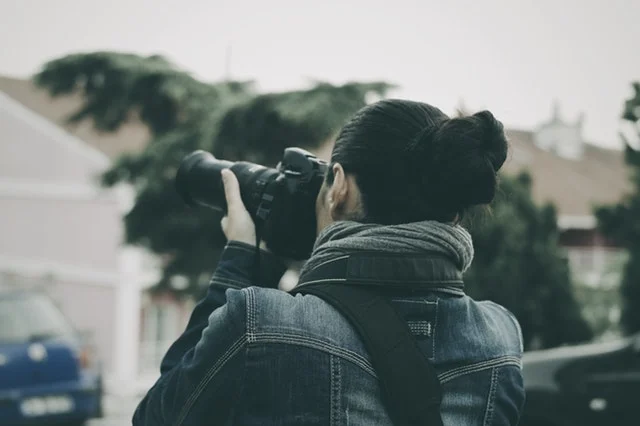I'm over it all
WTF does one even say at a time like this? Like many other Black journalists, I’m exhausted.
By now, you’ve seen multiple articles detailing the numerous Black American’s dying at the hands of police officers or so-called vigilantes. On top of the COVID-19 pandemic and the glaring inequality and widespread violence that already plagued Black Americans, police brutality is yet again at the forefront of American consciousness. It never left mine, though.
With that consciousness has brought an onslaught of pitch calls from editors seeking Black American perspective. It's sad, but not surprising to see that many of them only offer to pay a few hundred dollars for a dispatch of the Black American experience.
While I'm glad to see interest from editors in a discourse about Black American inequality, I also wondered how long such interest would last. Will editors still be interested in the narratives of Black American struggles and triumphs long after the dust has settled regarding the Black Lives Matter protests? Would they continue to be interested in healthcare, education, housing, and a myriad of other inequalities in six months to two years from now?
And what implications does that have for sustained interest in other marginalized groups, such as Asian Americans who have faced physical assault and harassment spurred by the COVID-19 pandemic and racism and xenophobia? Or perhaps the murder and harassment of trans people?
As editors posted their public calls for pitches, I received a few ideas in my inbox from new and previous clients. I turned down a couple,inquiries because I felt I couldn't do them justice in the limited time allotted per article.
But upon further reflection, I realized that there was something off-putting about writing about race so quickly as protesters called for the defunding and eventual abolition of policing. Yes, there are plenty of writers who are much faster than me—a sluggish and nervous features writer. I understand that the digital news media ecosystem requires quick pivoting. But I also felt apprehensive about hastily putting together a piece too quickly that would not do justice to the topic at hand and thus reflect poorly on me in the future and not push the discourse forward.
And furthermore, it would be nice for me to get solicitations from editors that aren't spurred by violence against Black people. A quick glance at my portfolio shows that my work spans across various beats, ranging from tech and health to business. A dive into my B-to-B work reveals writing across niche areas such as law, marketing, retail, and planning. I was partially annoyed with the fact that my perspective would not be solicited for stories that had nothing to do with race, too, right?
Thankfully, I've never been discouraged from writing about race over the course of my reporting career. And I've been comforted to see writers like Ta-Nehisi Coates and Nikole Hannah-Jones who've been lauded for their work examining the impact of white supremacy on education, wealth inequality, etc.
The thing that is giving me life during this difficult time is the uprising within the press. It has been bittersweet, but more sweet than bitter to watch black people and other people of color rise up to confront the white supremacy, misogyny, and classism within the journalism profession. One after another, the stories that esteemed journalists have shared about their experiences in oppressive newsroom cultures have been horrifying, but the bravery required to bring them to light has been extraordinary. Our industry continues to shrink. Opportunities for anyone but especially diverse journalists continue to decline. And yet we have the desire to create equitable newsrooms equipped to cover an ever-changing world.
I hope that media executives will take these rebellions for what they are: a sign that now is time for fundamental change in how our media business operates. We need higher pay, better benefits, and a truly inclusive office culture. There must be greater equity between the higher paid executives and the reporters who are reporting on the ground, between freelancers earning more than $4 per word and those begging for $0.50 per word. We need contracts that allow us to profit off of the work we create for companies, especially white-owned media companies. These values can not be empty corporate-speak anymore. Reporters who are accustomed to bringing about accountability for other companies, industries, and individuals are employing the same bravery of their sources in hopes of reconstructing newsrooms that can reflect the communities they cover without sacrificing journalists’ sanity in the process.
While we’ve seen leaders stepping back or stepping down at Refinery29, Variety, Bon Appetit, The New York Times and Man Repeller, I’m eagerly awaiting to see whether brands will take this time to make much-needed changes.
For too long, I’ve felt that the discussions surrounding diversity and inclusion in media have been too… nice, too charitable, bordering on condescension. This discourse always sounded to me as though they’re allowing women into a men’s only club or providing donations to an underprivileged community. An empty gesture aimed at calming the unrest.
But what I hope the powers that be are coming to realize is that diversity and true inclusion are essential for the craft and business of journalism. Such values can no longer be an afterthought. Throughout my (brief) career, I’ve seen repeated reports detailing dismal diversity data and inexcusable gender racial pay gaps. The heartbreaking Twitter threads pouring out stories of being underpaid, harassed, or unacknowledged have made it impossible to ignore.
Will this time be different? Will it really?
What efforts would you like to see take place to improve diversity and inclusion in journalism? What would be a sign that change is truly happening? Tell me in the comments or email me at contact@thefreelancebeat.com.





